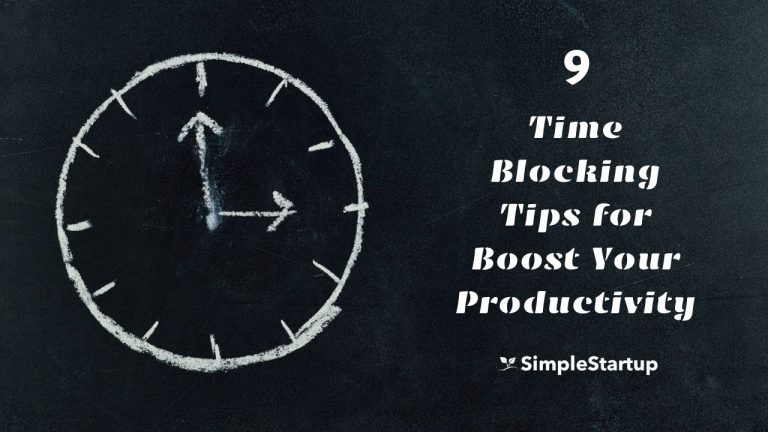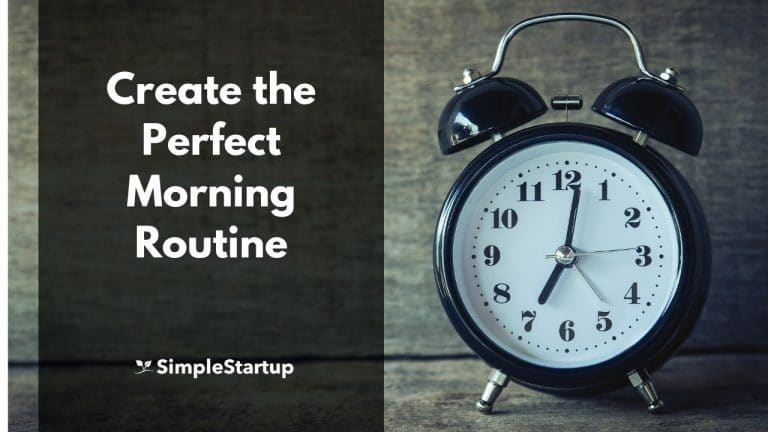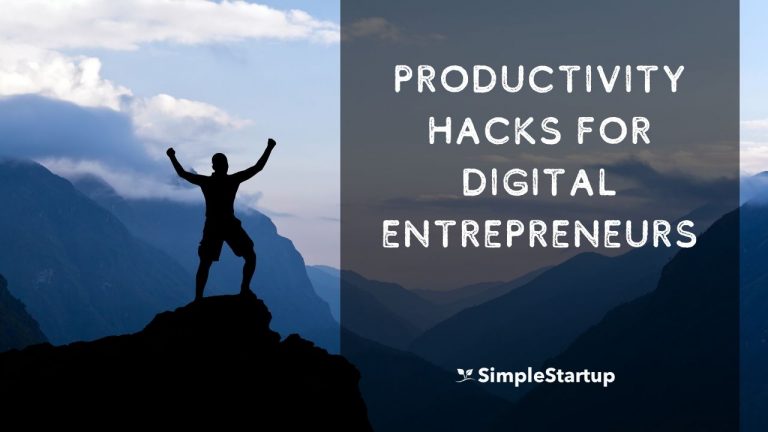
Do you want to learn how to be consistent with everything you do?
Whether you’re trying to establish the habit of writing daily, meditating each morning, journaling, reading, working out, it can be challenging to build the habits and stay consistent with whatever you’re focused on.
In this post, I’ll share 10 tips on how to be consistent so that you can get meaningful work done each day and accomplish your goals.
1. Start tracking your habits
The biggest game changer for me when it comes to consistency is tracking my habits. I discovered an app called Goodtime, and it really changed the way I think about habits and routines.
I use the Pomodoro techniques (25-40 minute sessions) for each session. The pomodoro technique allows you to focus on a task for at least 25 minutes with no interruptions.
Using a time and habit tracking app like Goodtime, you can record the session for your tasks. I record each time I read book, listen to a podcast, workout, meditate, and so on.
You can also create different categories and color code them to make it easier to track.
By tracking your habits, you’ll be much more likely to stick to your routine because you’re able to visually see your progress.
2. Use the 2-day rule
One of the biggest traps we can fall into when we miss a day is to convince ourselves that we’ll get back on track the following day or week. But days can turn into weeks and months. Before you know it, you still haven’t established a habit after so long.
This is why I started implementing the 2-day rule. I first learned about it from Matt D’valla and it’s something I’ve been following since. You don’t go 2 days in a row without missing a session (meditation, writing, working out, etc.)
This gives you the flexibility of missing a day if you really can’t do it, but not so much time that you fall out of the habit completely.
It’s psychologically much easier to maintain a habit long term by knowing you can miss a day if necessary. It’s similar to having a cheat meal or day each week. You’re more likely to stick to your plan if you have a day off. But if your plan is too strict, then you’re much more likely to binge and gain back all the weight in a short time.
3. Eliminate Distractions
We have a limited amount of energy, will power and focus each day so if we’re getting distracted and not getting the right work done each day, then we won’t be as consistent as we need to be.
Here’s some suggestions to help you eliminate distractions:
1. Turn off notifications (text, email, social media, chat, Youtube, etc.)
One of the simplest ways to stay focused is to turn off notifications on your phone and desktop. Studies show that we get distracted every 40 seconds so turning off text, email, social media and other distracting notifications can help you stay focused. I now turn off all notifications on my phone and only check them when I’m done my sessions.
2. Block distracting websites and apps with Freedom
Another way to eliminate distractions is to block websites and apps on your desktop and phone using Freedom app. You can create a blocklist and create a session for up to 24 hours. I use Freedom every time I do a Pomodoro session which really helps me get work done. I can’t check Youtube, email and other distracting sites so I’m usually the most productive during those sessions.
3. Put your phone in the other room
Out of sight, out of mind. If you don’t have your phone in sight, then you’re much less likely to be tempted to reach for it while working. Whenever my phone is elsewhere, I don’t even bother to go get it. I’d rather just continue working.
4. Don’t multitask
Multi-tasking is not an effective way to work. It may seem like you’re getting more work done but when you’re multi-tasking, you’re simply just switching tasks quickly. Each time you switch tasks, you’re leaving a residue behind of the previous tasks. This can making working extremely inefficient especially if you’re doing creative work.
4. Use a Calendar (Physical and Digital)
“Deciding in advance when and where you will take specific actions to reach your goals can double or triple your chances of success” – Heidi Grant Halvorson
If you schedule your events in advance, there’s a greater change you’ll take action on it. For example, scheduling your workouts, webinars, meetings, writing sessions will make it easier to follow through.
By scheduling your tasks and events for the week, you’ll also get notifications so it’s less likely that you’ll miss it.
You can use Ical, Outlook Calendar, and other calendars. I prefer to use Google Calendar for scheduling all my tasks. I synced it with Todoist app, so that any tasks will also be added to the calendar automatically.
Ever since I started scheduling events and tasks, I noticed that I’m getting things done that I actually want to do. Before calendars, I’d miss a lot of events and other tasks and postpone it for the following week. So this has definitely helped in terms of keeping me on track.
5. Revisit your “why” frequently
“Regardless of WHAT we do in our lives, our WHY—our driving purpose, cause or belief—never changes.”
Simon Sinek
If you don’t know why you’re doing something, then you’re probably not going to stick with it long term. Your why is your purpose for doing something. Your purpose could be to be able to spend more time with your family, freedom to work from home, connecting with others more deeply, and so on.
Your purpose is personal. You know in your heart what it is. No one else can tell you. Think often about what matters most to you. Use visuals if you have to so that it’s in mind at all times.
Once you’ve identified your purpose, it’s important to revisit it often. Your why will drive you forward and allow you to persist when things get difficult.
6. Start with the end in mind
“People are working harder than ever, but because they lack clarity and vision, they aren’t getting very far. They, in essence, are pushing a rope with all of their might.”
Stephen Covey
One of the principles in the 7 principles of highly effective people by Stephen Covey is to start with the end in mind. If you know where you’re going, then you’ll have a greater change to get there.
Your vision is what will drive you forward. Get crystal clear about your who you want to serve. Where do you want to be in 5 or 10 years? The more clearly you can define your vision, the easier it will be to follow through with your day to day tasks so that you can eventually realize that vision.
7. In sight, in mind
When you first start to build a good habit, you’re going to face a lot of resistance. The more you can reduce the resistance the most likely you’re going to take action.
Keeping things ready in advance can help you do it. For example, if your goal is to meditate in the morning, keep the meditation cushion and timer ready. All you need to do it go and sit. This is how I’ve been able to build a solid meditation practice. But you can do this for anything.
8. Focus on building the habit
Building good habits is important for being consistent.
It can take 66 days to build a habit. It may take longer or less than this, but on average it will take at least 2 months to achieve automaticity with any new habit.
Once the habit has been established, you don’t have to really think about it. It’s embedded within your subconscious and all you need to do is follow through each day without much resistance at all. You won’t have to convince yourself why you shouldn’t do it that day. It’ll be as easy as brushing your teeth.
So it’s important to realize that it’s not something that will take a long time. You don’t have to fight for that long. Just keep chipping away long enough it becomes automatic. Then you can focus your energy on building another habit.
9. Use motivation and action to your advantage
In an interview with Tom Bilyeu, Mel Robbins said that motivation is garbage. This is true. You can be as motivated as you want, but unless you’re taking the action necessary each day to make progress, nothing will happen. And you’ll lose the motivation as quickly as it appeared.
As entrepreneurs, we’re not looking for transient motivation. We’re looking for something more permanent and lasting.
What’s the solution?
When you’re feeling motivated (perhaps you watched a motivational podcast, movie, song, etc.) take action as soon as possible. Use that motivation to your advantage. Don’t just let that energy die down.
Motivation is potential energy. Action is kinetic. It’s energy in motion. It’s e-motion or energy in motion. Motivation is the spark needed to make things happen. Whether it’s sparked from within or from something external, when it’s available, use it and you’ll be much more likely to get things done.
So although I agree with Mel that motivation by itself is garbage, combined with action it can be a very powerful force.
10. Think about the consequences
If you don’t stay consistent, what do you fear will happen? Regret is one of the most powerful emotions you can feel. It’s something a lot of people feel, especially near the end of their life.
If you’re not consistent with what you’re trying to do, then it’s likely that you’re going to look back a year from now and feel some — perhaps a lot — of regret.
It’s much easier to live with the fact that you gave it your all then not having tried at all and then wondering what could have been.
I used to have a lot of regrets about stopping working on business and giving up on a lot of other things. Had I stayed consistent I would have been much further along. But I’ve learned that there’s no better time than now to start again. Don’t ever give up. That’s the real lesson and key.
The best time to plant a tree was 20 years ago. The next best time is now. So focus on what’s in front of you. It’s never too late to start again. Keep the faith and believe in yourself. Believe in the process.
Conclusion
Being consistent is not easy. It can take a lot of energy, focus and will power — especially when you’re first getting started — to gain the momentum you need to stick with your habits long term. But if you focus on a few simple things each day to stay motivated and take action, then you’re much more likely to succeed.






